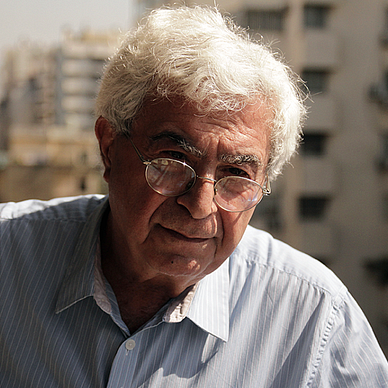An Adventure on the Aegean Sea
Introducing “Maneuver” by the Fisherman of Halicarnassus
The Fisherman of Halicarnassus is the pen name of Turkish author and intellectual Cevat Şakir Kabaağaçlı (1886–1973).
Overnight, ten to fifteen fishing boats surrounded a deserted island in the open seas with their fishing nets. At dawn, as the fishermen’s songs reached for the skies, they applied their strength to their oars, gathering their nets.
Normally their songs melted away sweetly into the blue sky. However, that day, they fizzled at their lips. An uneasiness hung in the air; even their hearts were gloomy.
An old fisherman said, “The seagulls are not flying over the boats today. Look! They are returning to their nests. This is not a good sign at all.”
A strange silence enveloped them. Everyone kept a close eye on the weather. It was obvious the silent sea was expecting a storm. The fishermen scanned the horizon, wondering where the storm would erupt.
Their nets were full of horse mackerel, red bass, picarel, and haddock. Their holds were already half full with the wiggling silvery fish.
The Martı’s captain, Yavaşoğlu, said, “Let’s hurry up friends!” He was frowning.
Loud rumbles in the southeast sounded like fingers tapping on a drum. The fishermen, concerned about both their lives and their livelihood, gathered the nets as quickly as they could.
Soon, a vicious rustling emerged, as if the boats’ ropes were screaming.
From boat to boat, the captains cried out, “Cut the nets!” The knives came out, and the fishermen cut the nets as if cutting their own bloodlines. The nets represented all that some of these poor fishermen owned as they slowly sank into the raging sea along with the red, blue, and green fish still trapped within them. By now, even the pulleys of the sails were snarling. The short storm sails were hauled in, slapping against the water when they busted free. In these unforgiving seas, hauling the red storm sails could only mean one thing: a life-or-death fight.
The first icy raindrops raced down to the sea, scaring the living daylights out of the fishermen as the winds ravaged the sails, whipped at the fishermen’s clothes, and nearly ripped every hair from their heads. The fishing boats — now scampering from the hurricane as fast as they could — resembled women with long upturned skirts blowing toward their heads on a windy day.
When caught in the path of a hurricane generated by the emperor of the south, the mighty Provezza, the only option is to go toward it — ensuring either life or death.
At that moment, each boat had more than enough to do to survive, and their crews were trying hard not to let the boats get separated from one another. The incessant downpour was filling the holds with rainwater, and the crews were desperate in their attempts to empty them using any bucket they could find. The weight of the fish loaded in the boats pulled them low into the water, causing seawater from the churning waves around them to accumulate in the boats as well.
Soon the wind and rain was punctuated with shouts to throw the fish into the sea. Both fish and fishing nets were tossed into the sea. The downpour continued like giant gyroscopes swirling in circles, first gobbling up water from the sea and then spitting it out like useless rags, as they passed with the thunderous sounds of a thousand express trains.
Yavaşoğlu’s Martı was considered a cursed boat. Since being built, it had capsized three or four times, and nine of its crew had died. There was something wrong with its structure. Although nobody could figure out exactly what its defect was, it was clear that the boat was fickle.
If Yavaşoğlu turned the wheel by even by a hair too much or took his eyes off the course for just a second, it would surely be the end of all those on board. Even now, for a second, the Martı’s stern was down while its wheel was up in the air.
The boat immediately gave its sideboard to the wave. Yavaşoğlu ground his teeth so hard that he almost broke them. He was fighting both the storm and the boat.
Yavaşoğlu’s son, fourteen-year-old Mehmet, squatted at the base of the pole used for the boat’s safety line. He was holding the end of the line tightly in his hands, ready to either let go or pull in as soon as he heard his father’s command. His eyes remained fixed on his father at the wheel, who would give the all-important command that would either kill them or save them.
His father yelled, “Let go!”
Mehmet let the line go. The boat’s sail swung just above his father’s head. A gigantic wave on their back pushed the stern high in the air. For a moment, Mehmet thought his father was flying in the air, with the bottom of the wheel still clenched in his hands. But the wave barked as it passed from under the boat.
The boy screamed “Father!” as his father sank deep into the sea along with the stern. But Yavaşoğlu was suddenly tossed up to dizzying heights. The Martı kept on flying.
Between the shrieks of the storm, human cries could be heard. Some of the men had already drowned. Foam and water bubbled up from the sea while also pouring from the sky. The Martı moved through a dark and chaotic nightmare. The clouds were like dungeons cracking over their heads, emitting layers of fire streaking through the skies. A sudden deluge rolled the boat twice before spewing the Martı into the air.
Yavaşoğlu, dared and sputtering from near suffocation, surfaced. He surveyed the scene. Two men were clinging tightly to the boat, but where was the third? Yavaşoğlu feared for his son, but asking about his son first was beneath his captain’s dignity. So, he asked, “Are you there?” using each of his crew’s names. Finally, he asked, “Are you there my son, Mehmet?”
“I am here!” Mehmet answered.
Yavaşoğlu shouted, “Hold on to the boat — all of you — as tightly as you can!”
In weather like this, the most likely outcome is death. However, the crew held on to the boat with their hands, fingers, nails, and teeth — whatever they could! To live one more second, they had to hold on one more second. Like animals feeling the pain of the knife sliding deep in their hearts during slaughter, they screamed for help. Their teeth chattered, and their eyes were blinded by the burning sea salt.
The dark sky was ripped apart by a huge bolt of lightning, and they saw a boat coming toward them. They screamed with pain, “Save us!”
The Umit was approaching, with Captain Habip at the wheel. But then the Umit jumped about 20 meters ahead of them, its crew turning as they passed the Martı by to look at those they were leaving behind to the mercy of a dismal fate. They screamed with sadness. Trying to save those in the sea meant drowning and dying themselves — before saving them. They were apologizing to the friends they were abandoning.
From a distance, a human voice sounded. Another lightning bolt lit up the sky, and they saw the Denizkuşu coming toward them. Captain Ateşoğlu, who had fished with Yavaşoğlu for more than 30 years and had spent many good as well as bad times with him, was at the wheel. His eyes were full of tears. Ateşoğlu was going to attempt to do what the others could not. He commanded, “Round in!” He turned the wheel.
The Denizkuşu turned to face a huge wave. Rounding in on such a treacherous day like this was foolish. However, Ateşoğlu was at the helm and was going to do everything he could. He turned the Denizkuşu around to look for the Martı. Lightning flashed, revealing the Martı in the distance. The Denizkuşu raced toward the Martı, but getting too close meant shattering the other boat into pieces. The Denizkuşu passed by the Martı. Ateşoğlu shouted through his megaphone: “Hang on, friends. We will be back!”
With perfect maneuvering, like a gyroscope spinning on its axis, he guided the Denizkuşu around. It lifted as high as the eye of the storm as it turned downwind. The Martı was not in sight. With the next flash of lightning, the crew on the bow pointed and yelled, “They are there!”
Ateşoğlu barked out his order. “Two men to the starboard, and two to the port. Open your eyes real well! We can’t repeat this maneuver many times.” He continued: “One man stand next to the safety pole. When I say ‘lower the sails,’ do it fast!”
The Denizkuşu moved toward the Martı like an arrow shot from a bow. Each time the wind hit, the whole armada crackled like the bones of imprisoned men being tortured to death. When they were five meters from the Martı, Ateşoğlu screamed, “Lower the sails!” The Martı crested a huge wave. Just as the wave was about to fall, Ateşoğlu yelled, “Hoist the sails!” The boat’s yard was tossed in the air.
Reaching into the sky, the sails were nearly shredded. Like a race horse being whipped, the Denizkuşu took off, nose up, flying over the Martı from its side against the wave as Ateşoğlu yelled, “Take them in!” The crew reached out, over the railings and down to their waists, to pull their friends, grabbing their arms, their hair, and their chins — anything they could get a hold of.
They swept them aboard as if emptying their daily catch of fish into the depository. Like swallows circling over a pool of water, pausing to quickly gulp in the water while still in flight, the Denizkuşu had plucked four men from the sea.
Ateşoğlu asked, “How many?”
The crew responded, “Three.”
The Martı’s captain said, “We are all here.”
There was no time to exchange pleasantries. With its red sails, the Denizkuşu dove into the darkness and disappeared.
An Oxford-educated historian, Cevat Şakir Kabaağaçlı was also a humanist, ecologist, and ethnographer, who produced a variety of travelogues. Today, he is better known as a naturalist. His poetics of marine life, and flora and fauna specific to Bodrum peninsula qualify The Fisherman as an important bioregional writer. Throughout his life, he worked tirelessly for marine conservation in and around Bodrum and helped establish top-quality ecotourism facilities in that region. He was a prolific writer. When he died in 1973, he left behind many novels, collections of short stories, and essays.
For more great stories from Global Literary Theory see this list:



Sign up for our newsletter here. Sign up to write for us here.

